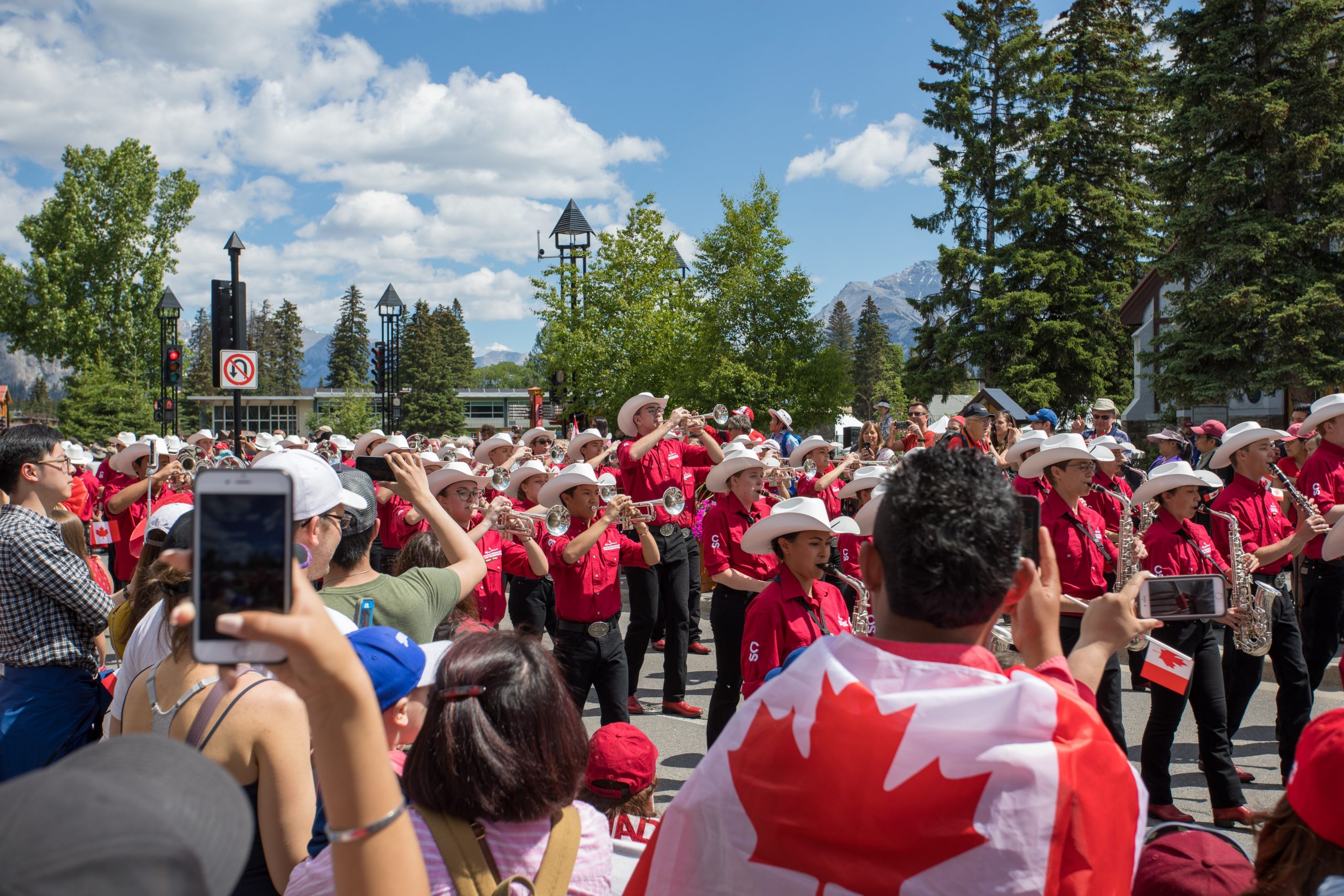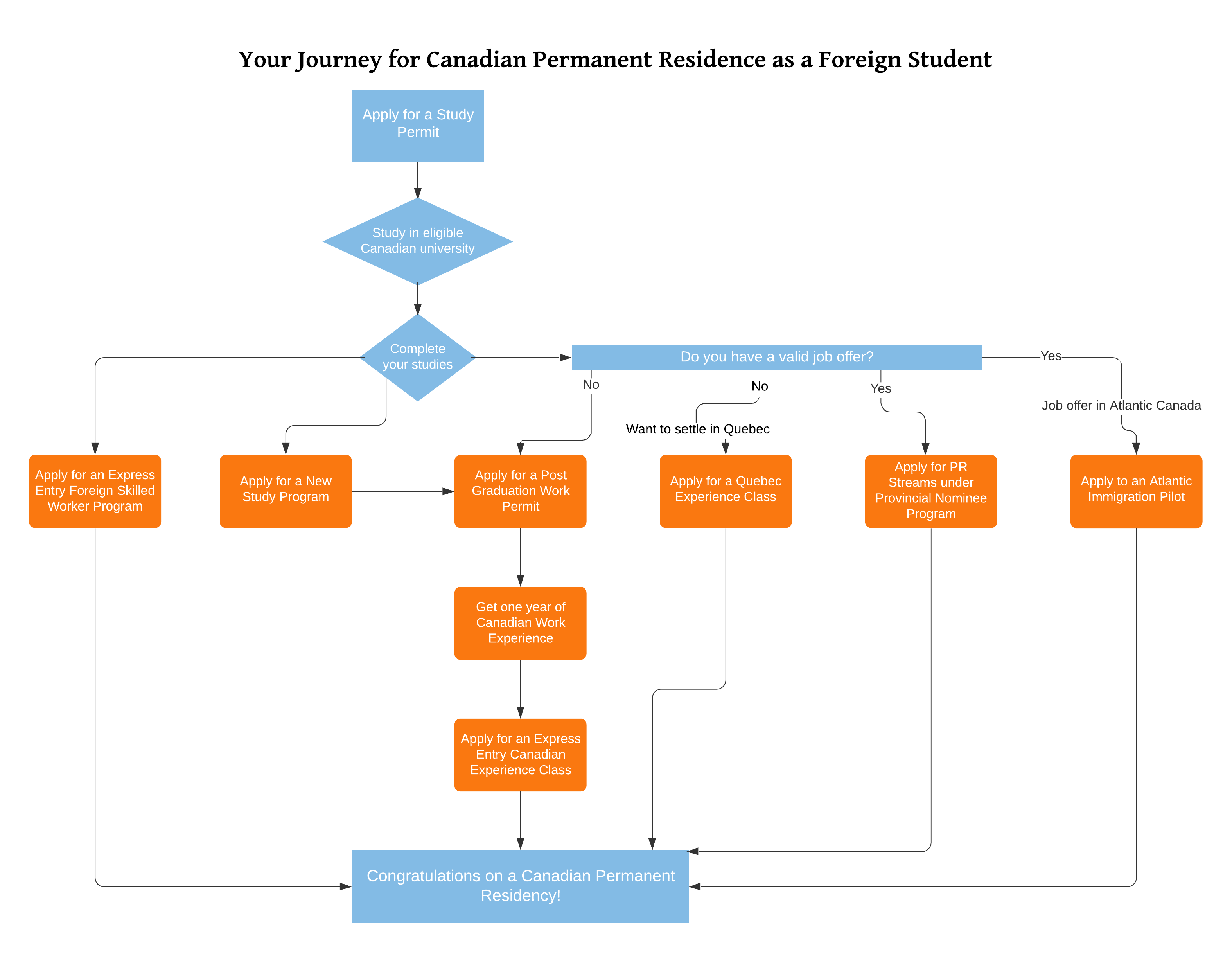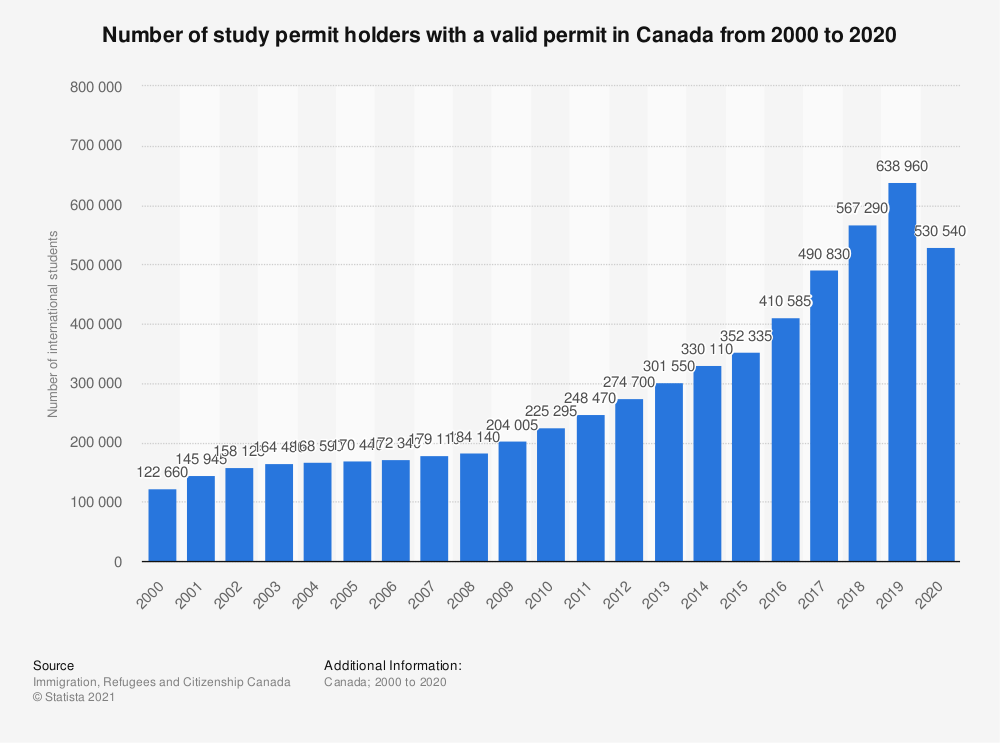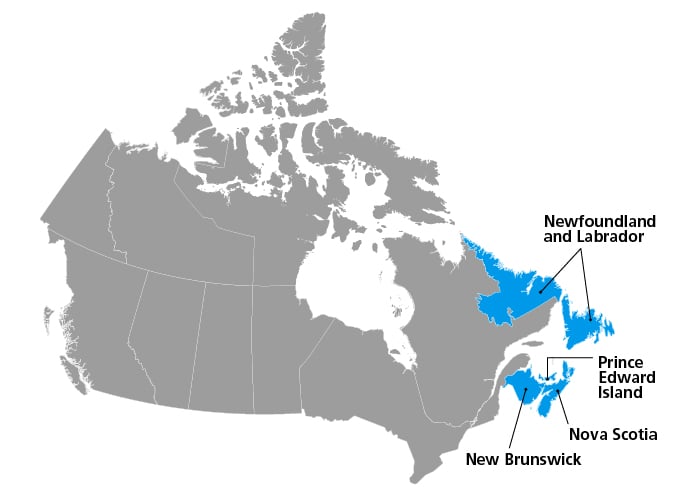Obtaining Permanent Residence in Canada After Your Study
You might have come to Canada initially as a student and may now wish to become a permanent resident of Canada. This article provides guidance on becoming a Permanent Resident (PR) of Canada after completing your studies:
- What Are the Benefits of Being a Canadian Permanent Resident?
- PR for Recent Graduates through Express Entry
- Other Pathways to PR for Graduates in Canada
- New Temporary Resident to Permanent Resident (TRPR) Pathway Program
- Ways to Obtain PR After Graduation
- Recent Statistics on PR for Graduates in Canada
- What to Expect in the Future
- FAQ
- We Can Help
RELATED ARTICLES
A permanent resident is a person who is assumed to reside permanently within Canada and has been given that permission as a result of immigrating to Canada — but the person is not (yet and may never become) a Canadian citizen. He or she is a citizen of another country. Being a permanent resident gives one almost all of the rights a Canadian citizen has, other than the right to vote.
Here are the main benefits of being a permanent resident:
- Access to most social services that Canadian citizens receive, including healthcare: Canada’s healthcare system is known for its quality and efficiency. As a permanent resident, you will have access to free medical care, with some exceptions such as dental care and prescription drugs outside of a hospital setting. Permanent residents are also eligible for certain tax rebates and social benefits such as retirement and disability benefits.
- Right to live, work, and study anywhere in Canada: With a PR card, you have the legal right to move to any territory or province in Canada. You are not tied to an employer, job, or even a province, as is the case for temporary residents.
- Right to sponsor family members to come to Canada: Once you become a permanent resident of Canada, you can apply to sponsor close family members to join you in Canada.
- Freedom to start a business: Permanent residents can also legally start their own enterprise or invest in a franchise.
- PR status cannot be taken away: As long as you follow the law, Canadian PR status cannot be revoked, except in cases of criminal behaviour or prolonged absence from Canada.
- Right to become a Canadian citizen: Becoming a permanent resident is the first step to becoming a Canadian citizen. After you have held permanent resident status in Canada for five years and lived in Canada for at least three of those five, you become eligible to apply for citizenship!

Study Permit (SP) holders, as well as Post-Graduation Work Permit (PGWP) holders, are considered temporary residents of Canada. The Canadian government has developed several pathways to allow SP and PGWP holders to become permanent residents and stay in Canada permanently. The most common path of obtaining a PR is through the following Express Entry immigration programs:
In general, Express Entry is the quickest way of obtaining PR in Canada. It uses the Comprehensive Ranking System to select the most qualified candidates; you can learn how the Express Entry ranking system works.
PR through the Canadian Experience Class
The Canadian Experience Class (CEC) is designed for skilled employees who have prior Canadian working experience and now wish to become permanent residents. The CEC is open to candidates who are familiar with Canadian society and can contribute to the Canadian economy. This program is primarily used by recent graduates to transition from temporary resident status to permanent status. After completing their studies, foreign graduates usually apply for a Post-Graduation Work Permit. A PGWP allows students who have completed their studies to gain Canadian work experience, which in turn gives them access to the Canadian Experience Class.
Step-by-step guide to obtaining PR through the CEC:
- Complete your studies in a Canadian: You must complete your studies in the designated learning institution and get a degree or diploma to be eligible for the next step. The higher the level of degree you get, the higher rating score you will receive in the Comprehensive Ranking System while applying through Express Entry. A higher score improves your chances of obtaining a PR when you apply for it later.
- Get a Post-Graduation Work Permit: After completing your studies, you should apply for a PGWP and get at least one year of full-time Canadian work experience in a skilled occupation to become eligible for the next step. Ideally, your work experience should be in a field that is related to your field of study.
- Apply for the Canadian Experience Class through the Express Entry System: If you become eligible for the CEC, you must express your interest in becoming a permanent resident by creating an online Express Entry profile. Then you will obtain your CRS score. Wait to receive an Invitation to Apply for permanent residence, then prepare your full PR-application and pay fees. Contact our team if you need assistance through these stages. We can guide you through this process and improve your chances of getting permanent residence.
- Wait for approval: Once the government department called Immigration, Refugees, and Citizenship Canada approves your application, you will receive confirmation that you can move to Canada! Currently, CEC applicants obtain a PR in a shorter time compared to all other Express Entry programs.
PR through the Federal Skilled Worker Program
Another Express Entry program that can be used to transition from temporary to permanent status in Canada is the Federal Skilled Worker Program (FSWP). This program is for skilled employees with foreign work experience in professional, managerial, or technical fields who want to immigrate to Canada permanently. Thus, if you have graduated recently from a Canadian designated learning institution but do not have Canadian work experience, you can choose to apply for the FSWP. However, you must have skilled work experience acquired abroad totalling at least one year of continuous employment within the last ten years (combination of part-time, full-time, or more than one job in your primary occupation is permitted). Additionally, if you do not have a valid job offer from a Canadian employer, you must provide proof of funds to support yourself (CAN $12,960 per year).
Step-by-step guide to obtaining a PR through FSWP:
- Complete your studies, ideally in Canada: If you have a degree obtained from a Canadian learning institution you will get additional points in the Express Entry rating, which in turn will improve your chances of obtaining a PR quickly.
- Apply for the Federal Skilled Worker Program through the Express Entry System: If you become eligible for the FSWP, you must express your interest in becoming a permanent resident by creating an online Express Entry profile. Then you should get your CRS score, wait to receive an Invitation to Apply for permanent residence, prepare your full PR application, and pay fees.
- Wait for approval: After you have submitted your application, you can use your personal online account to check its status and learn when you will be able to obtain your visa and permanent resident status in Canada.
The transition from temporary to permanent resident in Canada is not limited to the Express Entry program. There are several pilot programs as well as provincial and territorial initiatives that allow foreigners to apply for permanent residence after completing their studies. These are described below.
Obtaining PR Through the Atlantic Immigration Pilot Program
The Atlantic Immigration Pilot (AIP) was launched in 2017. It covers only Atlantic Canada, which includes four provinces:
- New Brunswick;
- Nova Scotia;
- Newfoundland and Labrador; and
- Prince Edward Island.
This program was developed to help employers in Atlantic Canada hire foreign workers who want to immigrate to this part of Canada, and foreign graduates who want to stay in Atlantic Canada after their graduation from an eligible learning institution in these provinces.
One out of three AIP streams is designated specifically for international graduates. Note that this pathway is open only to foreigners who:
- Have recently graduated from a designated learning institution located in Atlantic Canada;
- Have lived in an Atlantic province for at least 16 months in the two years before graduating;
- Have taken a language test to show that they can communicate in English or French. This must be done even if the foreigner has studied in Canada;
Who is a designated employer?
A designated employer is a company authorized by the federal or provincial government to hire international workers. Such an employer commits to support the newcomer employees and their family members, if necessary, as they integrate into their new life in Atlantic Canada. There is a special list of designated employers in each province or territory. An employer can become designated after it submits a special application form and this application is approved by the respective authorities.
- Have enough money to support themselves in Canada;
- Have a valid full-time job offer for at least one year from a designated employer in Atlantic Canada.
Note that if, at the time of application, you have a valid Post-Graduation Work Permit, you do not need to demonstrate proof of funds.
Step-by-step guide to obtaining PR through the AIP
- Graduate from a designated learning institution in Atlantic Canada: This is a prerequisite for AIP eligibility. Only education obtained in Canada is considered.
- Get a job offer from a designated employer in Atlantic Canada: You must have a valid full-time job offer for at least one year to be eligible for AIP.
- Apply for permanent residence to Immigration, Refugees, and Citizenship Canada: You must submit your application and pay all fees. Please note that AIP application fees can be more than CAN$1,325.
- Wait for approval: The average processing time is six months. However, the time mostly depends on the clarity and comprehensiveness of the application. Contact our team, and we will assist you in preparing your application as well as in other steps in your quest for permanent residence.
Obtaining PR through Provincial Nominee Programs
Many Canadian provinces and territories offer permanent residence immigration programs for international graduates through a set of Provincial Nominee Programs (PNP). In general, applicants must have graduated from a designated learning institution in that particular province or territory. Other requirements can vary by province. For example, sometimes a valid job offer or minimum of a master’s degree is required. PNP is the second fastest way to obtain permanent residence in Canada (after Express Entry pathways). Please note that, typically, if you apply for PR in a particular province or territory you must live there for a certain period. Below is a brief overview of PNP programs for recent graduates in some select provinces:
In 2021, the Canadian government launched a new pathway to permanent residence for international graduates of Canadian institutions who would actively contribute to the country’s economy in the future. This program is called the Temporary Resident to Permanent Resident (TRPR) pathway. Currently, it is a limited-time initiative that was introduced to fill the gap of new permanent residents caused by the COVID-19 pandemic.
This program has six streams, two of which are for international graduates from designated Canadian institutions who are currently employed in Canada:
- Stream for recent international graduates from a Canadian institution: There were 40,000 available places in this stream. However, the stream reached its application limit, just one day after going live.
- Stream for French-speaking recent international graduates from a Canadian institution: This stream has an unlimited number of applications that could be accepted. According to IRCC, the stream will remain open until November 5, 2021.
There is no certainty that this program will be available after 2021. However, the government may retain this accelerated pathway to permanent residence, as it will encourage international graduates to “put down roots” in Canada, while helping the country retain the talented workers it needs as a result of “serious demographic challenges.”

Over the past two decades, the number of international students in Canada has grown considerably. The number of study permit holders rose from 122,660 to 638,960 between 2000 and 2019. In 2020, the number decreased due to the COVID-19 pandemic.

Here are key facts you should know about permanent residence for international graduates in Canada:
- Three in ten international students who entered Canada after 2000 have remained in the country and become permanent residents within ten years after receiving their first study permits;
- 50 percent of foreign students in master’s degree programs and 60 percent of doctoral students transitioned to permanent residence during the past decade;
- 60 percent of international students who worked during their studies or after graduation became permanent residents;
- 87 percent of students who got their first study permit between 2005 and 2009 and earned CAN $50,000 or more annually became permanent residents;
- The highest PR transition rate for international graduates is in Alberta (more than 42%) and the lowest is in British Columbia (less than 25%).
“Our message to international students and graduates is simple: we don’t just want you to study here, we want you to stay here.”
Contact us, and our team of professionals can assess your credentials and help you navigate the PR process. We will provide you with a realistic assessment of your chances of success and assist you in creating the best path for obtaining PR in Canada. We will explain the common pitfalls and ways to improve your credentials that will improve your chances of permanent resident status.
The importance of providing clear, complete, and accurate information throughout the process cannot be overstated. It is usually a good idea to seek the assistance of a professional who is experienced in the process so that you avoid making mistakes or acting on incorrect information at any step. We can assist you in all stages of your quest for Canadian permanent residence as well as make the application process efficient and stress-free.
If you are unsure about your likelihood of successful obtaining Canadian PR, contact us for a free evaluation. If you have any other questions that are not addressed in this article, please contact us and we will be happy to help.

